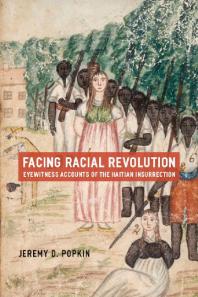Slavery and the U.S. Supreme Court: The Amistad Case
This digital collection is comprised of correspondence, dating from 1839-1841, by abolitionists, pro-slavery advocates, governmental officials, and the Amistad Africans themselves, related to the development of efforts to provide legal assistance to the Africans.

 Facing Racial Revolution
by
Jeremy D. Popkin
Facing Racial Revolution
by
Jeremy D. Popkin